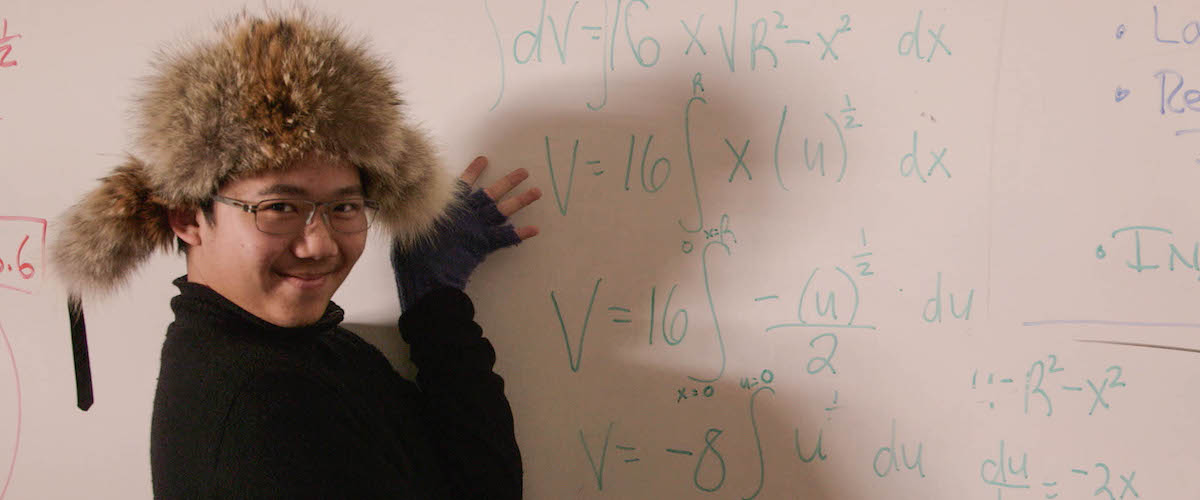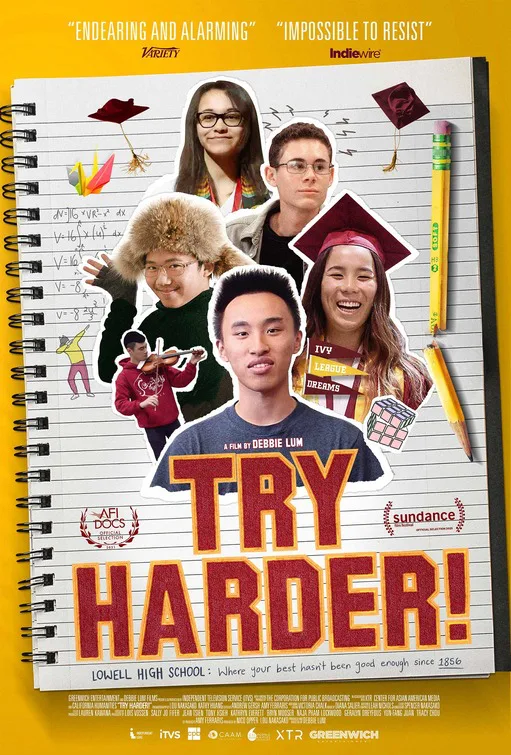A lighthearted attitude can be freeing, especially in the face of crushing absurdity. “Try Harder!”, a documentary that follows teenagers in the most intense years of their academic lives (so far), has a good attitude. It captures students of Lowell High School—the top-ranking school in San Francisco—talking about all of these colleges they crave acceptance from, the top grades they need to even have a shot, and the balance of pressure. It’s all absurd, but we’ve normalized it as part of making college a statement about the rest of one’s worth. Director Debbie Lum presents these moments often with peppy musical accompaniment, a considerable amount of comic relief, and genuine teenage joie de vivre. “Try Harder!” is a charming dark comedy with a light touch, with part of its self-deprecating humor right there in the title. These kids try plenty hard. But it’s the college admissions entity, set in place by prestige and standardized test scores and the promise of guaranteeing them success down the road, that needs to do much better.
The school that Lum focuses on has many significances in world of college admissions—the students of Lowell are famously known as “AP machines,” so much that Stanford is rumored to specifically not favor their applications. Lum and her crew follow these students around as if they too are trying to survive the bustle, gossiping about who got into where or who said what. When they’re given a tour of Lowell life by Ian, one of many charismatic characters in the documentary, it’s not of different social groups or cliques but the library, which is always packed after school. The same goes with the computer room, with numerous teenagers hunched over desktops. Ian has a smile on his face when he’s giving us this tour, because he does care about his studies; so too does the population of this school. This smart, savvy documentary does a great job in putting faces and stories behind students who are seen as computers, or seen as being just like the other.
That unofficial criticism of sameness is especially offensive given that a lot of the students come from similar backgrounds—the majority of the students are Asian American, with many students coming from cultures that emphasize academics as a means to success. (One student remarks that it is “Tiger mom central.”) Alvan, who is incredibly smart and lovably goofy, receives a lot of pressure from his Taiwanese-American mother, who has her own history of working hard that she is eager for him to carry on. But this emphasis on race from college admissions also creates a quandary about how students want to present themselves as they build resumes, engage with their classmates, and share their perspectives in application. Lum’s film handles on these elements with care, and they further add to what makes this profiled generation so significant in the bigger picture.
So many impressive students here, who have jobs outside of work, like Sophia at the ice cream stand, and are on top of their homework, like Shea who talks about barely sleeping in order to do his homework. They apply to numerous places, and get rejected; suddenly dreams of UC Berkeley are met with having to settle for UC Santa Cruz, as we hear from one student in passing in between a poignant montage based all around rejection. These students dream of getting into universities with increasingly low acceptance rates, wanting to be a part of a success narrative that involves giving up much of their teenagerdom to maybe a secure a spot in a college that may choose to not love them back.
“Try Harder!” also involves—though it notably does not dare attack—the absolutely messed-up standards of the college admission process, the problems created by relying on standardized testing, and all the factors that have made the journey to college so improbable, and sometimes so devastating. The lack of this conversation becomes noticeable, even as “Try Harder!” is more about observing these storms of anxiety and sometimes small wins. But there might be something to be said about how some of the successful students here know more exactly what they want to do with their lives, while committing to a process that does not encourage that kind of self-discovery. However subtle the epiphanies may be in “Try Harder!”, they do learn the viewer a thing or two about what matters most.
Now playing in select theaters.




















